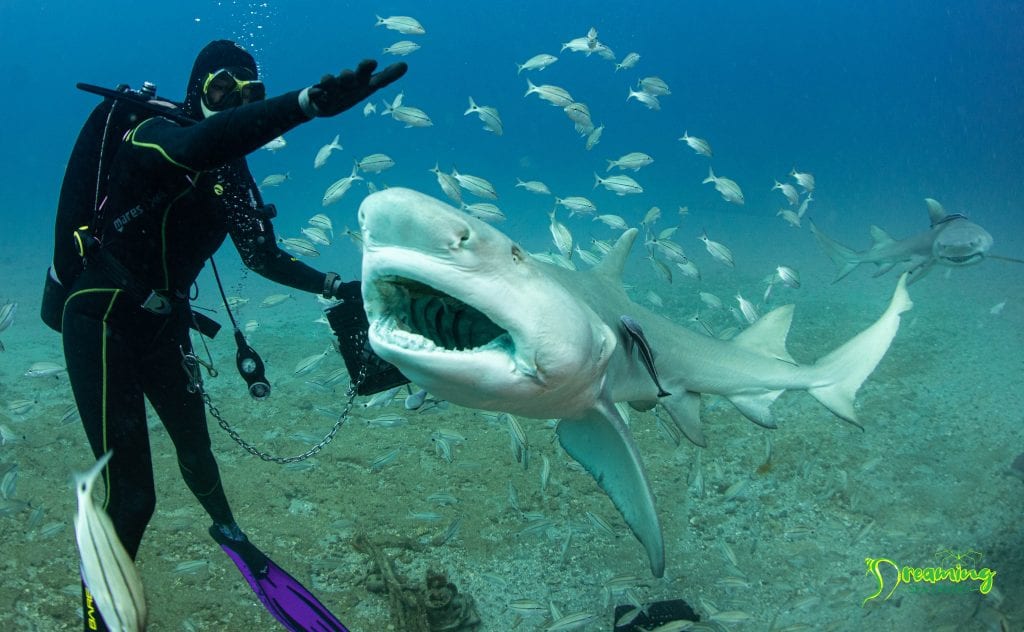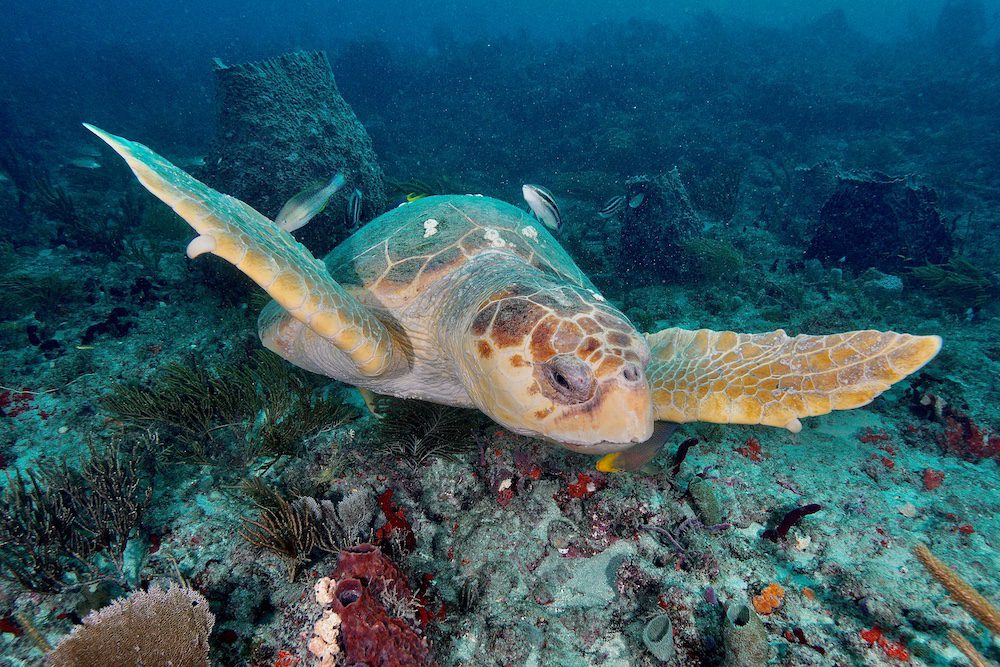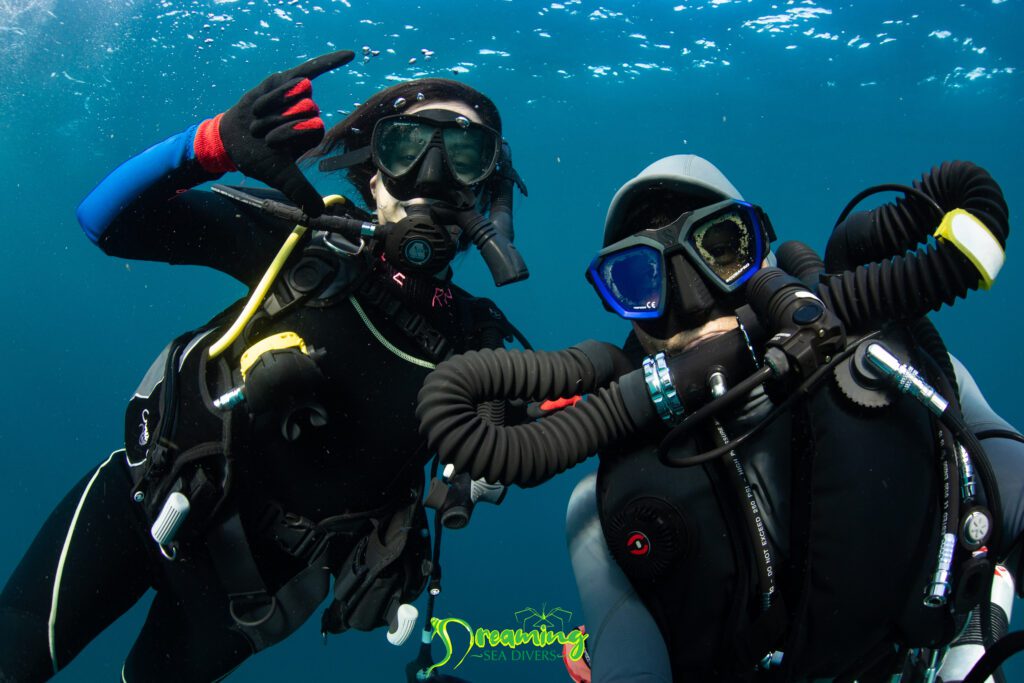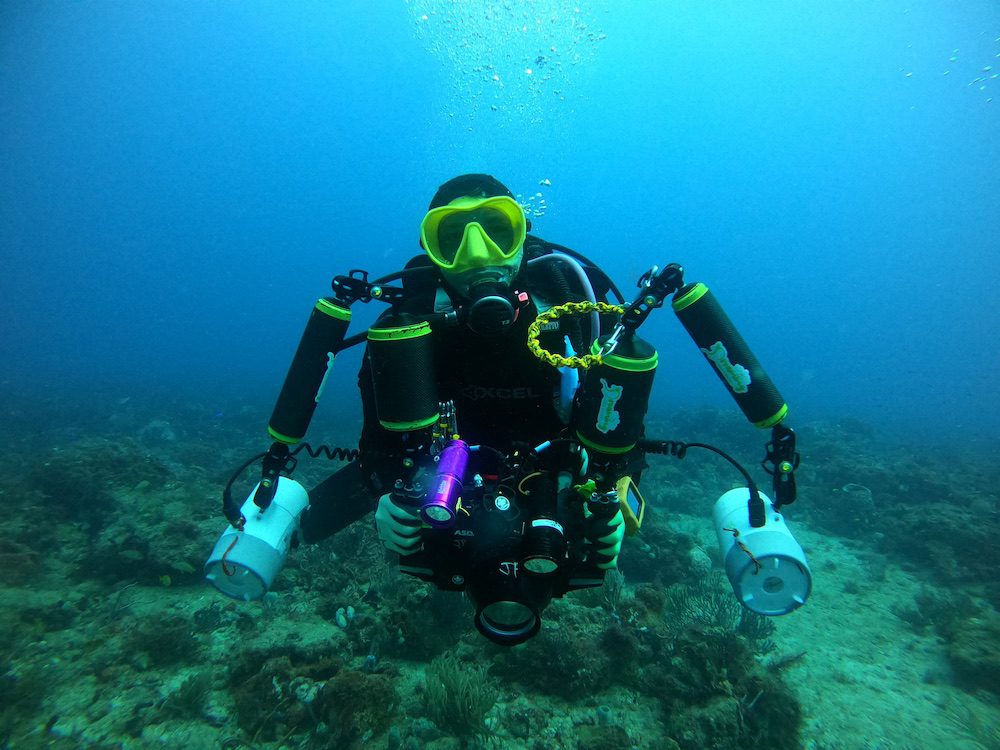
In the depths of West Palm Beach lies a world untouched by man, where experienced divers can find solace and adventure. Here, the water is crystal clear, and the marine life thrives in a diverse and vibrant ecosystem. It's a place where every dive is a new discovery, and the beauty of the underwater world is on full display. For those who dare to seek out the unknown and embrace the thrill of exploration, West Palm Beach is a destination that beckons them with open arms.
The dive sites in West Palm Beach are truly a marvel to behold. They are among the finest in the world, offering a cornucopia of experiences that cater to every diver's proficiency level. From shipwrecks to coral reefs, the underwater landscape is as captivating as it is varied. The wrecks of sunken ships lie on the seabed like monuments to the sailors who perished, serving as eerie reminders of the ocean's treachery. The coral reefs, on the other hand, are teeming with life. Schools of vibrant fish dart around the corals, while the curious gaze of lobsters and crabs peek out from their rocky hideaways. As you swim past this vibrant and colorful underwater world, you'll feel as if you've entered a different dimension, a world entirely separate from the one above. The experience is surreal, and it is no wonder why so many divers flock to West Palm Beach in search of adventure.
Off the coast of West Palm Beach, you'll find some of the best dive sites in the world. The Breakers Reef is a popular spot, offering divers a chance to explore a vibrant coral reef system. The Mizpah Corridor, known for its abundance of marine life, is another must-see. And for those seeking adventure, the wreck of the S.S. Copenhagen provides an eerie yet fascinating glimpse into history. These dive sites, among many others, offer a diverse range of underwater experiences for divers of all levels.
For those seeking a truly immersive and tailored experience, private guided tours are the way to go for West Palm Beach diving. With the help of a knowledgeable guide, divers can delve deeper into the secrets of the underwater world. From schools of colorful fish to elusive sea creatures, a private tour can help uncover all the hidden gems of the ocean. With a private spearfishing or hunting guide, divers can seek out their own dinner, while those with a passion for photography can capture stunning shots of the vibrant marine life. The possibilities are endless with private tours, and the memories made will last a lifetime.

When it comes to West Palm Beach diving, there's something about sharks that draws divers like a magnet. They're one of the most fascinating and misunderstood creatures of the deep, and to swim alongside them is a rush that can't be found anywhere else. But diving with sharks is not for the faint of heart. It requires courage and respect for these majestic creatures. That's why taking a private shark diving tour is the best way to experience this thrill while ensuring your safety. With a smaller group and a personalized guide, you can get up close and personal with these incredible animals in a controlled environment. It's an experience that will stay with you long after you leave the water.
Experienced divers know that diving in West Palm Beach requires proper preparation. Before taking the plunge, divers need to ensure they have the necessary equipment, including a well-maintained dive tank and regulator. It's also important to have a dive buddy and a dive plan in place before entering the water. Diving in West Palm Beach can be a challenging experience, and divers must be aware of their limits. It's important to stay within one's skill level and to avoid pushing oneself too far. Finally, divers must always be respectful of the marine environment and adhere to diving etiquette. This includes avoiding touching or disturbing marine life and leaving no trace behind.
In West Palm Beach's underwater world, divers can encounter the most fascinating and diverse marine life. It's a place where the water is so clear that it feels like diving into liquid crystal. The thrill of swimming with schools of fish, exploring shipwrecks, and getting up close with exotic sea creatures is simply unparalleled. For those with a passion for adventure, West Palm Beach's underwater ecosystem is an absolute must-visit destination. It's a place where you can immerse yourself in the wonders of the deep blue and experience nature in a way that is truly unforgettable.
Connect with Dreaming Sea Divers to Start Diving West Palm Beach
Scuba diving is an exciting and adventurous activity that requires proper gear to ensure safety and comfort while underwater. One of the most frequently asked topics by scuba diving lovers is whether it is better to buy your own scuba diving equipment or rent it from dive businesses. While renting scuba diving equipment might seem like the more practical and economical choice, buying your own equipment can have a number of benefits.
Firstly, owning your gear guarantees that it fits correctly and comfortably. Your scuba diving experience can be ruined by unpleasant rental equipment, which may even result in physical pain like blisters or rashes. You can also customize your own tools to meet your needs & tastes. For example, you could add weight compartments or change the straps to accommodate your body type.
The potential for long-term financial savings is another advantage of purchasing your own dive equipment. While purchasing gear may seem expensive upfront, the cost of renting gear for multiple dives can quickly add up. Having your own diving gear may ultimately prove to be a wise choice, especially if you plan to dive frequently.
Owning your own scuba diving equipment can provide you a level of comfort and assurance about safety that renting equipment would not. In contrast, rental gear may have been used by many divers and may not be in the best condition. With your equipment, you can make sure that every part is operating properly, including the regulator, BCD, and tanks, lowering the possibility of equipment failure and enhancing your safety.
Purchasing your own scuba diving equipment has certain disadvantages as well. First off, especially for high-quality equipment, the initial cost might be rather considerable. Also, taking care of and maintaining your own equipment needs time and work. Regular cleaning, inspection, and servicing of your gear are crucial to ensure its longevity and safety. If you own your equipment, you will be in charge of its transportation, which might be a problem, especially if you're going far.
If you're planning to learn to dive in Palm Beach or dive frequently in the area, owning your own scuba gear may be a worthwhile investment. The best dive spots in Florida may be found in Palm Beach, and having your gear can allow you the freedom and flexibility to dive whenever you want. Also, having your own equipment might make you a better and more assured diver because you will be more familiar with it and its features. Buying your own gear also allows you to get to know your equipment intimately. Knowing exactly how everything operates and should feel will enable you to troubleshoot problems if they arise during a dive.
Whether it's worth buying your own scuba diving gear ultimately depends on your personal circumstances and preferences. Although there are many benefits to owning your equipment, it's necessary to take into account the initial expense, maintenance needs, & transportation constraints. Owning your equipment may be a great investment if you're a devoted diver or intend to learn to dive in Palm Beach. It can boost your diving abilities and experience.
Now that you're equipped with some knowledge about whether or not you should buy your own gear, reach out to Dreaming Sea Divers today to get diving!
SCUBA Diving transports us to another world - one relatively unexplored, but with so many experiences to offer. From the flora and fauna that inhabit the clear waters of Florida, to the amazing people you meet along the way, it's no wonder this sport is so easy to fall in love with. For those unfamiliar with some of the history, certifications, and equipment that come with SCUBA, we've laid out some answers to your common questions! Take a dive in and explore them here!:
Depending on who you ask, you’ll get a few answers.
Many diving historians say it was in 1825 when the Englishman, William James, invented the first open-circuit system (the air you exhale is vented, not re-breathed). The apparatus consisted of a copper helmet sealed to a waterproof suit. A container of compressed air around the waist fed into the helmet and was manually regulated by the diver.
Other experts say it was in 1878, when Henry Fleuss was granted the first re-breather patent. His apparatus enabled divers to stay underwater for up to 3 hours.
The most definitive example of the first SCUBA was in 1943, when french divers, Jacques Cousteau and Emile Gagnan, invented and successfully performed missions with their Aqua-Lung device. The system is still functionally-similar to the self contained underwater breathing apparatus used today.
These inventors each contributed essential knowledge towards the world of SCUBA we know today.

Individual experience level and the type of diving affects how deep you can dive. For those with basic open water SCUBA training, the limit is 60 feet (18 meters). With advanced open water recreational training, that limit is extended up to 130 feet (40 meters).
In the Technical Diving discipline, the average diving depth is 130-330 feet (40-100 meters), depending on the complexity of the site and diving plan.
It’s essential that you complete the proper training and dive certifications before taking the plunge! Dreaming Sea Divers courses can take you from beginner to expert with our expansive knowledge of SCUBA.
Paul was like a mighty tree that could weather any storm. He had seen everything; nothing phased him. His smile and warmth will be missed, but will live on in everything he touched
Buying your gear versus renting it is a big step for any new diver! It solidifies your commitment to the sport, but it can be daunting to know what to buy, and for how much. Here’s a general overview of the essentials, and how much you’ll likely shell out:
You’ll have to dive into your pocket to own your own SCUBA gear, that’s the truth! Finding a mask and fins that fit comfortably is essential to avoid distracting frustrations underwater and its important not to always go with the least expensive option when it comes to life support equipment such as your BCD and regulator. Finding the right piece of equipment for your budget that does not sacrifice features and safety is what we do at DSD. We also offer rentals of many different manufacturers and models so you can try before you make that big decision for your regulator and BCD.

We are certainly biased, but most divers will tell you… absolutely! There is an enchanting world below the surface, and private lessons open the gateway to exploring it. The courses that Dreaming Sea Divers offers under our Diving Fundamentals section will give you the basic diving skills and knowledge you need to begin your journey to becoming a qualified SCUBA diver. By taking these courses, you’ll get to experience the excitement of SCUBA diving and the amazing world below the surface. These programs serve as the stepping stones to further your diving education and gain the confidence to do more advanced dives later on.
With a private course, your time is valued and all of John's attention is on you. The customer service and high level of instruction that Dreaming Sea Divers provides is what sets us apart. No one does it quite like us.
In order to experience the basics of recreational diving, you’ll need to obtain your Open Water Certification. No prior experience is required, but you must be 10 years or older and in good physical health to swim and move in and around water.
The training begins by developing your diving knowledge. You will read an open water manual or complete an e-learning course to familiarize you with terms, equipment, signals, and planning. From there, you’ll take a final exam to ensure you have thorough knowledge of diving basics.
Then, the real fun begins. You will head to a confined aquatic environment, such as a pool, where you’ll get to practice your new knowledge with the instructor. This will likely take place at the facility nearest to you. The training covers how to:
Once you complete the confined water procedures, you'll head to open water. You’ll make four to five dives over multiple days, enabling you to flex your newly-learned skills and enjoy the sights of the local aquatic environment. This open water segment can be done at a location near you, but there are accommodations to begin this training locally, then complete it elsewhere (like Palm Beach, Florida!).
If you’ve ever wanted to take SCUBA diving lessons, experience unparalleled adventure, and see the world beneath the water, we encourage you to visit Palm Beach and enroll in our Open Water Certification Course!
You don’t have to live near the ocean to get SCUBA certified. Even if you live in a land-locked area, there are numerous locations that offer dive training. As mentioned earlier, you can begin your in-water certification at a location near you, then continue it elsewhere (perhaps the clear waters of West Palm Beach) when traveling on holiday. Locations can include lakes, quarries, and other bodies of water you may not normally associate with SCUBA.
Completing the training and attaining the level of Divemaster can take anywhere from six weeks to six months, depending on the frequency with which the dives are taken.

The terms “Master SCUBA Diver” and “Divemaster” may sound nearly identical, but they are different certifications. Both qualifications indicate highly experienced, knowledgeable divers.
A Master SCUBA Diver certification means that one has met the following criteria:
A Divemaster certification means that one has met the following criteria:
Just because your SCUBA tank is at the end of its life, doesn’t mean that it has to be tossed in the landfill! Repurposing tanks can range in creativity. Some opt to donate their used tanks so they can be used as props in diving education courses. Others take them to local artists to give them material inspiration for their next piece.
No matter what, ensure that the tank is unusable and not under pressure before scrapping or repurposing it. Old tanks are not necessarily unusable – they may just need a tuneup. If the tank's hydrostatic test date is expired, bring it to a facility for evaluation. Steel tanks have a very long life and some from the past decades can still be found in perfect working order.
Contact Dreaming Sea Divers to learn more about this awesome sport and how you can get diving today!